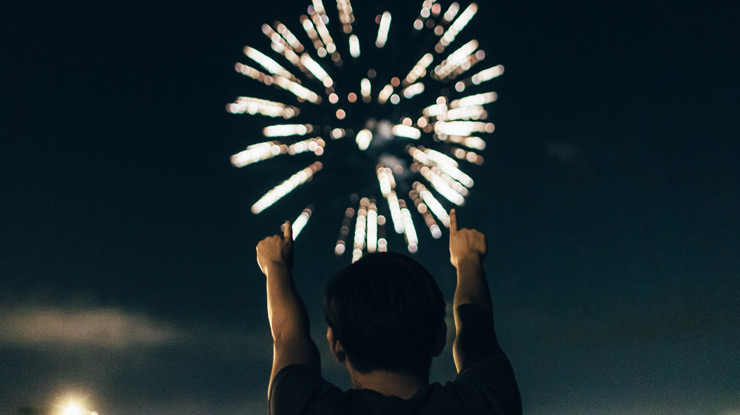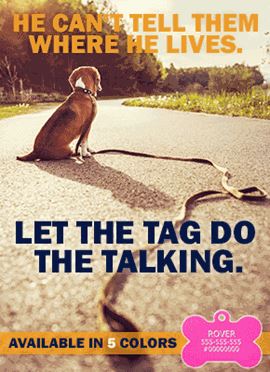
Help Your Dog Avoid a Fireworks Freak Out With These Tips
Was it intentional malice, ladies and gentlemen of the jury? Or was it merely the indirect result of extreme fear after you left him unattended when the first unexpected, heart-pounding BOOM hit the sky? You know it’s July 4th, but your dog thinks it’s the apocalypse.
While you should certainly empathize with his fear-induced behavior—accidentally breaking vases, digging a hole in the backyard, scratching through the drywall—you shouldn’t ignore the fear itself. Sure, those behaviors are upsetting to you. Your grandmother gave you that vase, you spent hours cleaning up the yard last weekend, and no one wants to go through the process of getting drywall replaced.
You have every right to be upset. But keep in mind that your dog is only acting out of extreme anxiety, and the only way to correct the problem, and prevent more drywall patches, is to pluck out the fear at the root. (And we’re not talking about aggression here. You should never overlook or ignore aggressive behavior.)
Not addressing the fear will reinforce more fearful (and dangerous) behavior in the future. Regardless of whether he’s a puppy or a senior, a dog needs to know that he is safe. And before you say anything—no, comforting a fearful dog is not coddling.
In fact, comforting your fearful pet will release oxytocin (the bonding hormone) in his brain, reinforcing his trust in you. A healthy relationship with plenty of trust will help give your dog additional support when dealing with stressful situations (like neighbors firing off fireworks).
Don’t give your pet the opportunity to dwell on the noises outside (which could potentially evoke a fearful and dangerous response). Instead, redirect his attention away from the scary noise. By changing his focus to something positive, you can build your relationship while steadily diminishing his noise phobia and preventing undesirable behavior.

10 Tips to Make Your Dog’s 4th of July Safer
1. On fireworks holidays, exercise your dog earlier in the day to avoid running into the evening’s pyrotechnics display.
2. Set aside a safe space for him to retreat to. Smaller spaces, like a crate or an empty tub, can be comforting during noise-induced fear reactions.
3. For loud outdoor celebrations, close the windows and curtains, then crank up the radio and television volume in several parts of the house to help muffle the outdoor explosions.
4. If you haven’t already, microchip your pet. In a fit of fear, a younger dog can slip his collar and vanish.
5. Bring the little guy inside and away from the noise, then find some fun activities to enjoy together. Play his favorite game or offer him a frozen Kong to settle him down.
6. Play calming music inside before and during thunderstorms and outdoor fireworks. Atmosphere can affect emotion, and emotion can affect behavior.
7. Don’t act worried—seriously. Your puppy senses more than you realize. Dogs will often copycat human behavior, so if you’re upset, he’s much more likely to be upset.
8. Be an opportunist. When the sky outside is rumbling, take a moment to practice your cues together. Start with cues he’s already mastered—sit, down, fetch—and reward his success with his favorite treats. The familiarity of learned cues will help ease his fear and desensitize him to the loud outdoor sounds.
9. Comfort your puppy. Yes, comfort him when he is fearful. Simply petting your pet when he’s afraid will ease his tension and remind him that he can trust you.
10. Be aware of your puppy’s body language so you can head off a fear reaction early. Early signs of stress include pacing, lip licking, and heavy panting. If you notice stress signals, redirect his attention to something familiar and comforting.
Regardless of age, a severely frightened dog may become fearful and lash out. Do not allow children or other animals to pester an anxious puppy. For severe cases that continue over time, contact a certified behaviorist.















